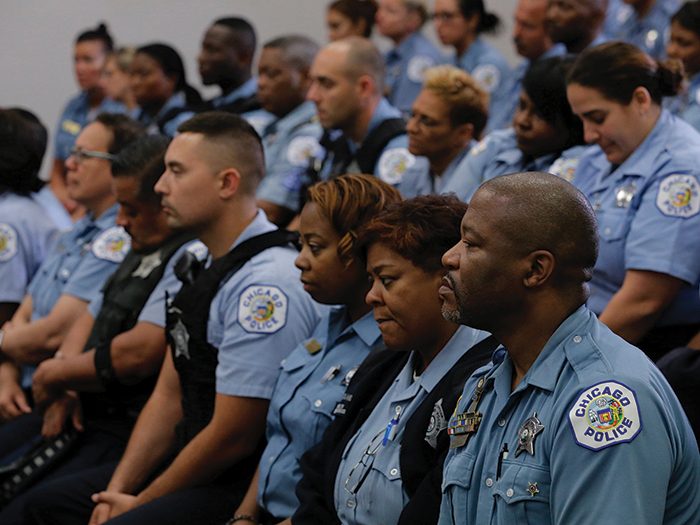First Responders Want COVID-19 to Be Covered Under Workers’ Comp. Will Governments Comply?

It’s no secret that personal protective equipment (PPE), such as hospital masks and latex gloves, are in short supply as the U.S. battles COVID-19.
Some people are hoarding N95 masks for their personal safety while others are selling them at a profit all while hospitals worry they will have to choose between keeping their staff safe or shutting their doors. The national stockpile of PPE is nearly depleted, Department of Homeland Security officials say.
With PPE in such short supply, other essential workers including first responders aren’t able to get any masks or gloves to protect themselves.
Whatever PPE supplies states are able to obtain go to hospitals where physicians are battling COVID-19 on the frontlines, leaving police officers, firefighters and some EMTs vulnerable to coronavirus, because many of them have to interact with sick patients as part of their jobs.
In Detroit, nearly half of the police force is in quarantine, and 39 members of the department have contracted the virus.
As the chance of exposure to COVID-19 increases for first responders, some are calling for states to pass legislation that would remove the requirement that employees prove their exposure was work-related in order to receive workers’ compensation benefits for first responders.
“We’re asking [first responders] to put their physical health on the line, they shouldn’t be putting their financial health on the line,” Minnesota State Representative Dan Wolgamott told the Saint Cloud Times.
Is COVID-19 an Occupational Illness?
The question of whether or not COVID-19 is an occupational disease is a tricky one. In most cases, communicable diseases aren’t covered under workers’ compensation, unless illness arose out of a person’s employment.
Whether or not the disease is compensable also varies by jurisdiction. Some states specifically exclude communicable diseases from coverage.
Even if coronavirus can be covered in your state, proving that you contracted the disease due to your employment can be tricky since COVID-19 can be transmitted by asymptomatic people.
It’d be easy to determine whether or not COVID-19 was contracted through the course of employment if a first responder became sick only after interacting with someone who presented symptoms of the virus. In many cases, however, police officers, EMTs and others become ill after interacting with someone who seemed completely healthy but was actually a carrier.
Government Action on the Table
Given that COVID-19 is often transmitted asymptomatically, some are calling for the disease to be covered under a workers’ compensation presumption for first responders.
In an open letter to America’s governors, the Fraternal Order of Police, the nation’s largest police officer union, called for officials to assume that officers who become sick are contracting COVID-19 on the job, making them eligible for workers’ compensation.
“The National FOP is very concerned with the occupational safety and health of law enforcement officers during the National Emergency,” they wrote.
“We have asked the U.S. Department of Labor to establish a presumption for law enforcement officers who contract COVID-19 as an occupational illness and be covered under workers’ compensation.”
With presumptions for first responders who contract certain types of cancers becoming more and more common, it is likely several states may opt to include a coronavirus presumption on their own.
Legislators in Minnesota considered a workers’ comp presumption for COVID-19 as part of their $330 million coronavirus relief package, but the proposal was ultimately excluded from the final bill because the state’s Workers’ Compensation Advisory Council was not in full agreement on the matter.
Now, first responders and others are pushing the governor to declare a presumption through executive order, though legislators continue to debate the matter.
“We need our first responders more than we ever have before, and they need to have the peace of mind that we have their back,” House Speaker Melissa Hortman told the Saint Cloud Times.
“If they can’t prove that they got COVID-19 on the job, but we know they’re at increased risk for getting it while on the job, we should assure them that we’re going to take care of them if they get COVID-19.”
Recommended Reading
For essential workers like first responders, preventing COVID-19 is key. Here’s how you can protect your employees.
As the virus continues, delays in return-to-work can be expected. Telemedicine can step to keep recovery on track.
COVID-19 isn’t just a health and safety risk for your company, however. With more employees transitioning to remote work, It’s also a cyber risk. &










